Hello??? If we haven’t been there, we sure know someone who has. In fact, according to Gallup, 85% of the world’s one billion full-time employees are unhappy at work. Hello Monday!
OK, that’s scary. But of course there can be many reasons for unhappiness. Maybe work is far from home. Maybe we’ve been forced by circumstances to do work we’re not suited for or just don’t like. But 85%?
Taking out all the other possible reasons, that leaves an awful lot of unhappy workers and there is no doubt, a toxic workplace is a crushing environment to spend 8 to 10 (or more) hours a day at.
If you are stuck in that toxic work environment, it’s going to have a significant impact on your performance and, quite probably, on your physical and mental health.
15 warning signs that job isn’t for you…
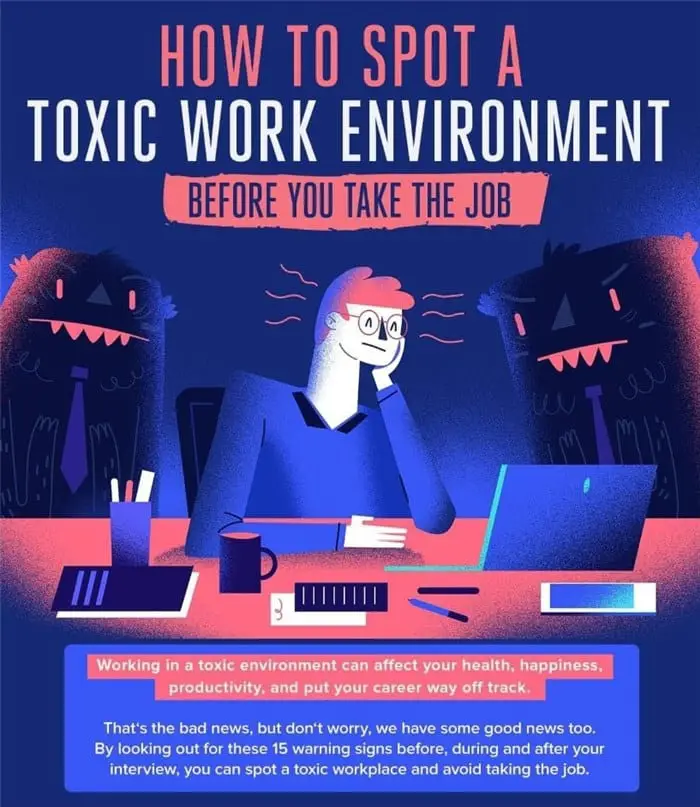
So before you take that new role, here are 15 indications that you might be entering a toxic workplace…
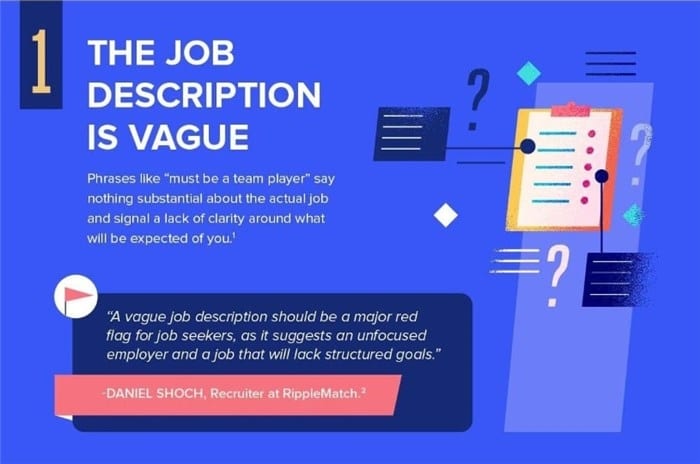
There should be clarity around the roles and responsibilities associated with the job – even if it is a new role within the company. That being said, a toxic workplace doesn’t have clear objectives.
This leads to people feeling lost in their career paths, like they’re stagnant and underutilizing their time and talents.
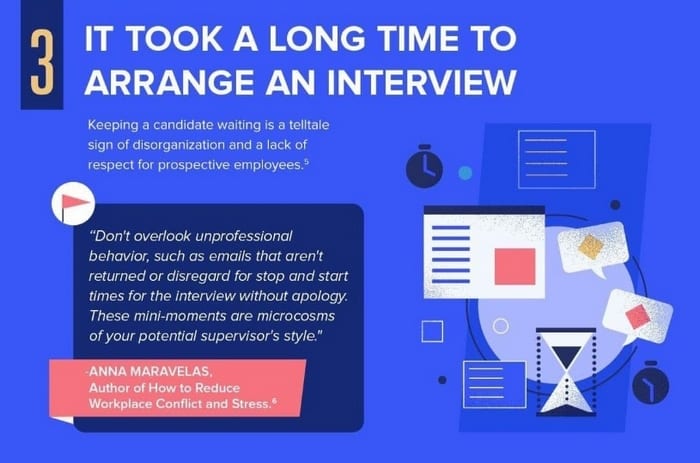
You were quick to respond to their request for an interview, but they kept you waiting for an appointment.
Consider that a red flag. Companies should show respect for the interviewee by getting back to them in a timely manner.
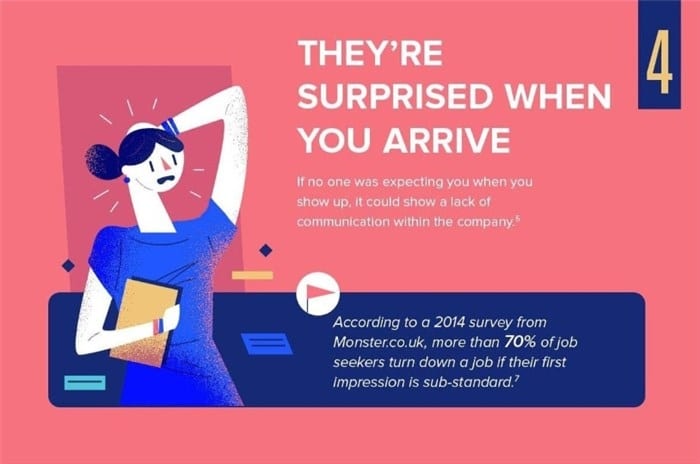
Finally, you get that interview – but when you get there you find no one is actually expecting you. This could mean that the company has serious communication issues, or that management simply does not prioritize potential employees.
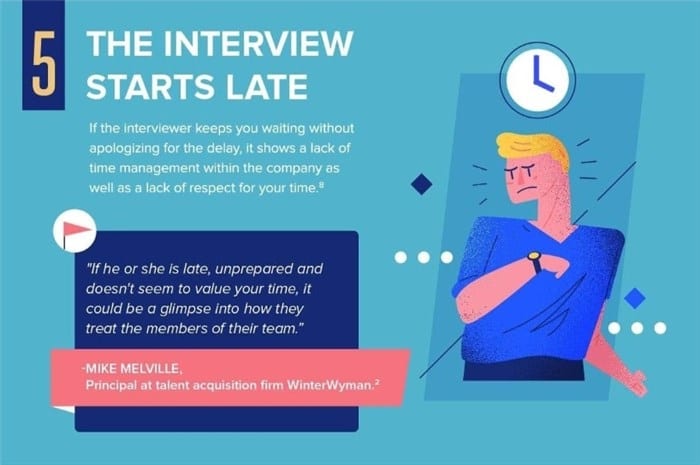
Punctuality is a two-way street when it comes to job interviews. If the interviewer keeps you waiting without an apology, then it shows that management lacks respect for your time.
Consider that a warning sign.
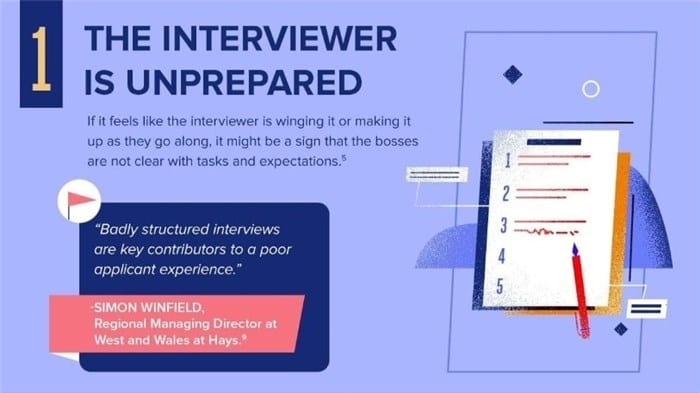
If, during the interview, you begin to suspect that the interviewer is winging it, then it just may be that there are no clear roles and expectations within the organization. This could signal a disorganized team.
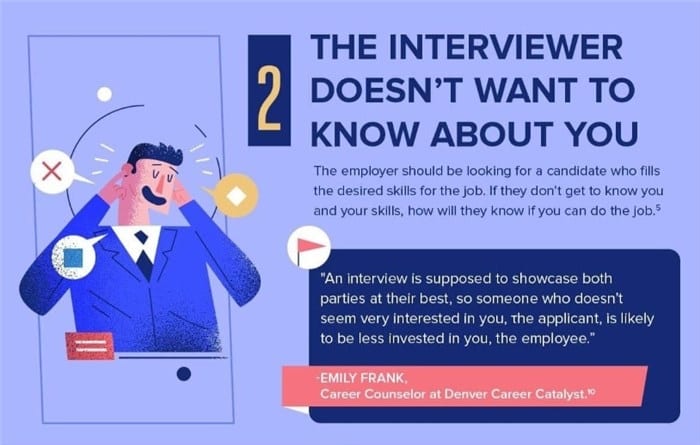
Both parties need to put their best foot forward in an interview. This is perhaps among the most important ways to determine whether the interviewee’s personality and skill set are in keeping with objectives of the company, and vice versa.
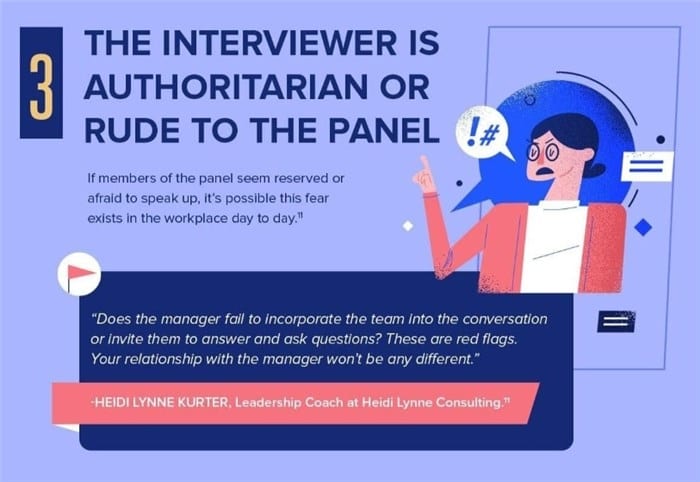
Watch out for rude interviewers. Their attitude should give you an idea as to how the company treats its employees.
Bad behavior at work can have very real consequences. People who experience workplace rudeness often report lower engagement, mental and physical health problems, and are more likely to burn out and quit their jobs.
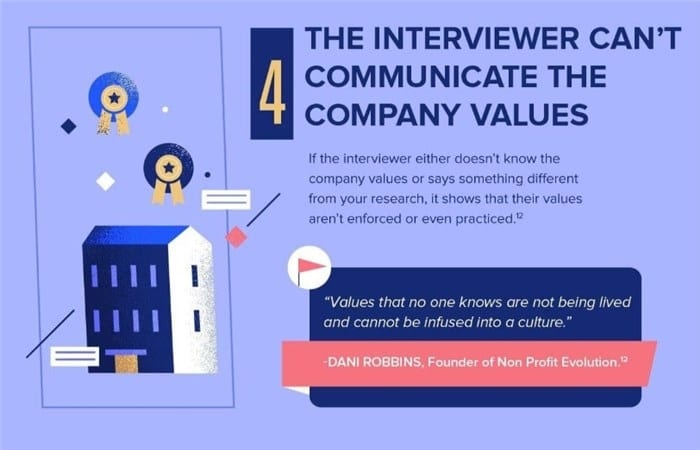
You obviously want to work for a company with good core values. That said, if a company’s values are embodied by employees, then they should be easily communicated.
Obviously, values are the driving force of an organization. Consequently, not having a clear set of core values means the company’s work culture without any real sense of direction.
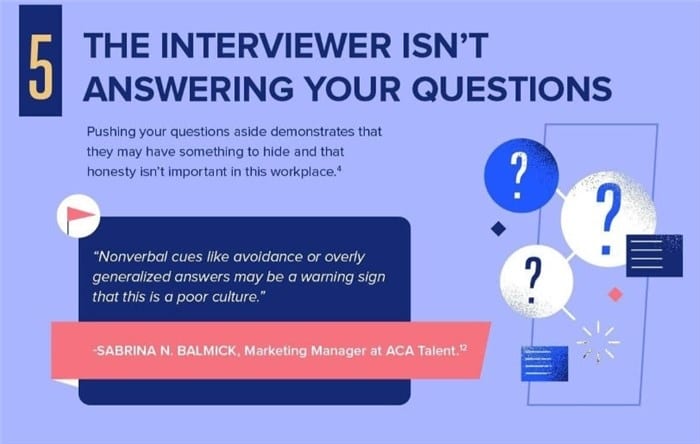
Pay careful attention to how the interviewer responds to your own questions concerning the company.
Reputable companies are transparent. Management should therefore be willing to provide clear and comprehensive answers to any questions an interviewee or job applicant might have.
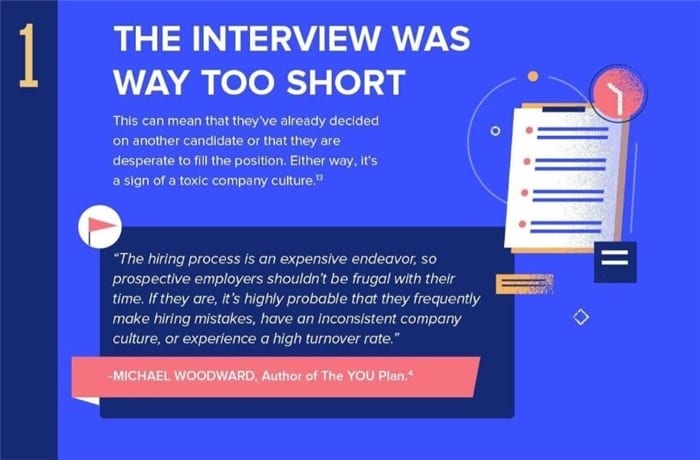
A short interview can only mean two things. Either the company has already chosen another candidate, or management is trying to fill the position as quickly as possible.
While the latter may not be a bad sign in and of itself, it might indicate that they frequently make hiring mistakes.
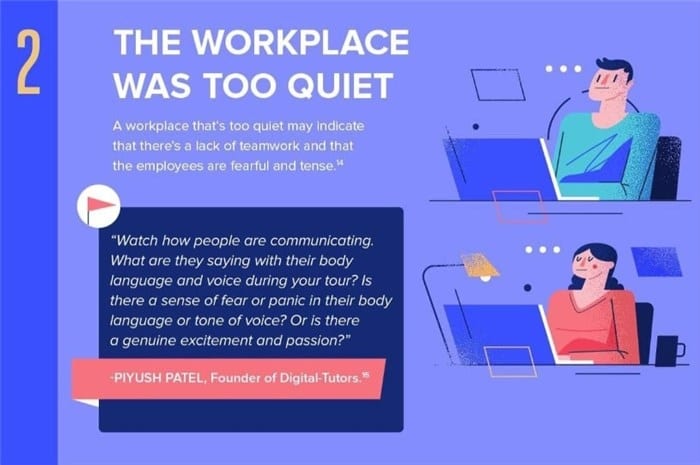
Be mindful of the overall environment in the office. A workplace that is too quiet might mean a lack of teamwork or that employees are tense and fearful.
Companies that mistreat their employees or do not give them enough appreciation for their work create an atmosphere of unnecessary stress and anxiety.
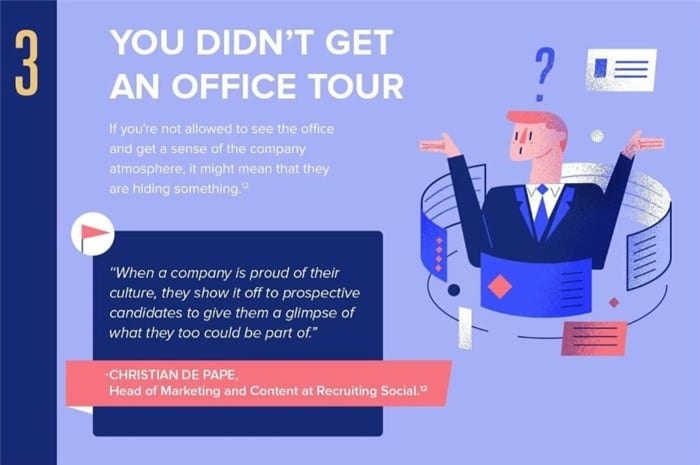
Companies should always give prospective employees a glimpse into what their work weeks could look like. If you weren’t given an office tour, then it could be that the company is trying to hide something.
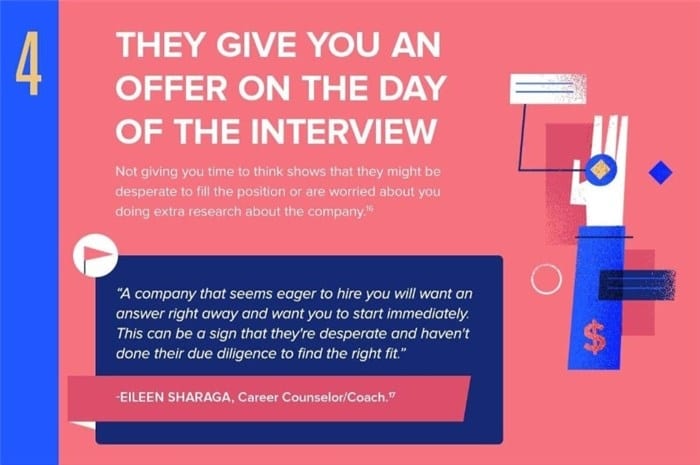
Think twice if the company gives you an offer on the day of the interview. The company might be attempting to limit the time you’re able to do more research on its reputation, operations, and organization.
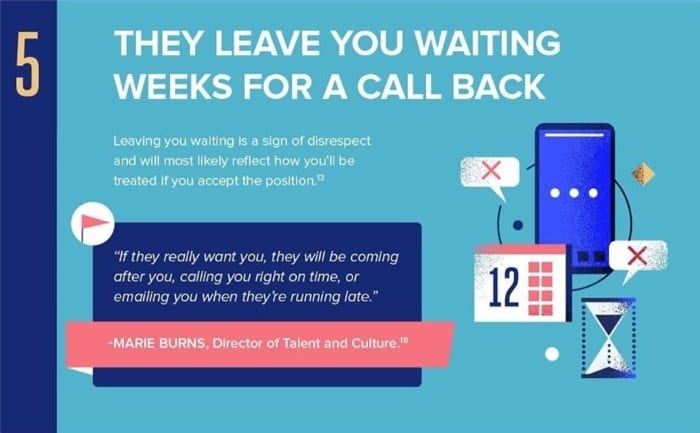
Any failure to get back to someone who has completed an interview shows either a lack of respect for their time or disorganization on the company’s part.
That’s an ominous indication of how you are likely to be treated – and the work culture you are likely to confront – if you do get the job. Watch out.
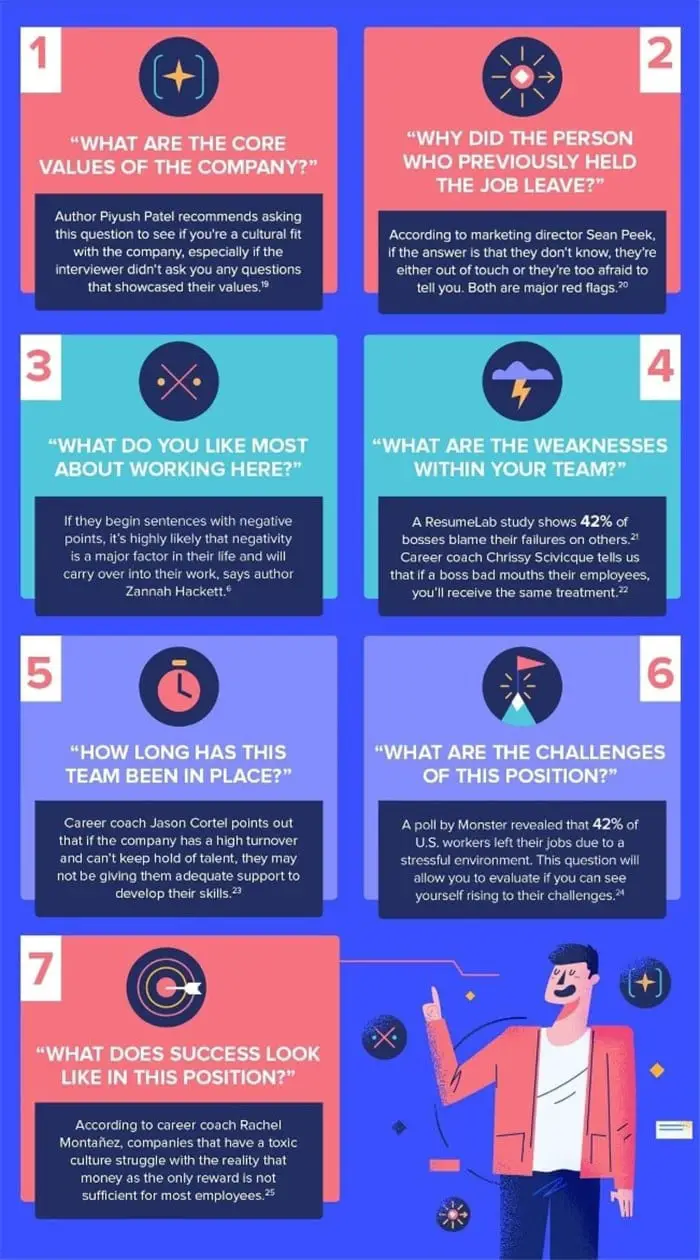
Of course, it is never helpful to scrutinize companies for small errors in judgement when most of the experience has been positive.
Be that as it may, if you have any uncertainties, be sure to ask questions and seek clarification.
When it comes to job interviews, inquiring after the culture of the company is just as important as questioning the interviewee on their knowledge and skills.
Remember, in today’s job market, good candidates hold the upper hand, and a solid company culture is crucial to your success.
Not only that, but a winning culture improves employee engagement, leading to happier employees and higher rates of productivity.
Images courtesy of Resume.io






